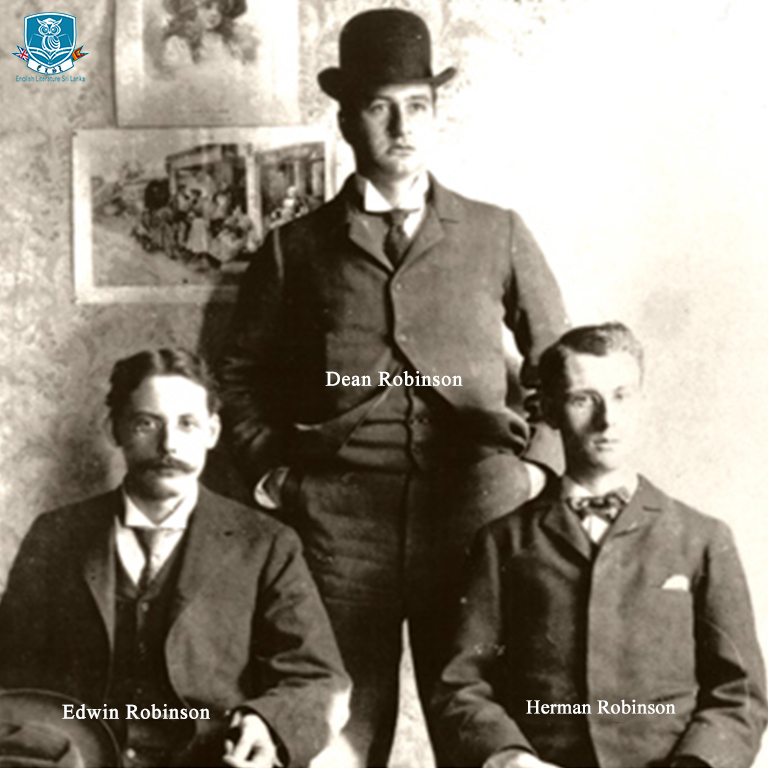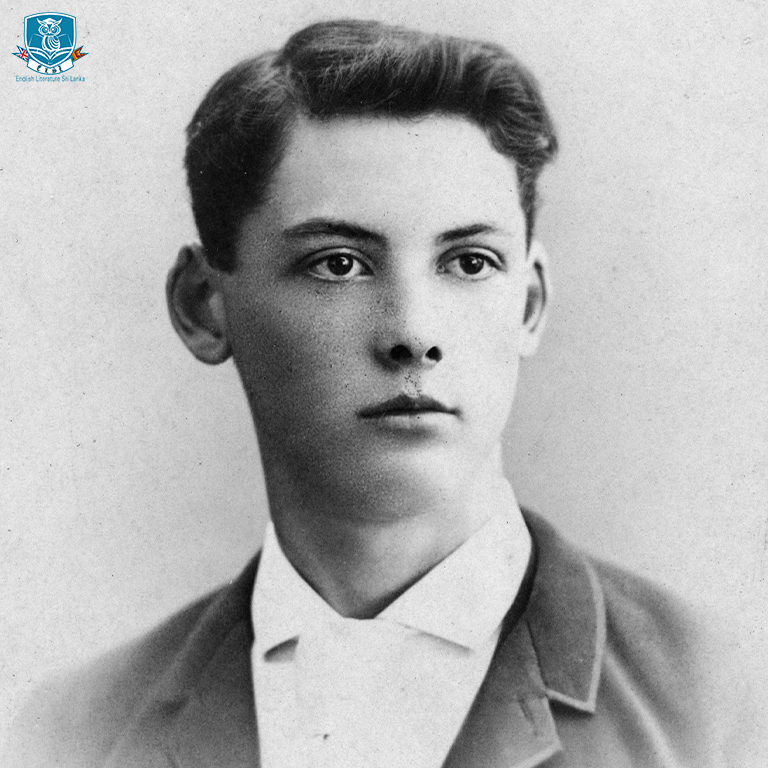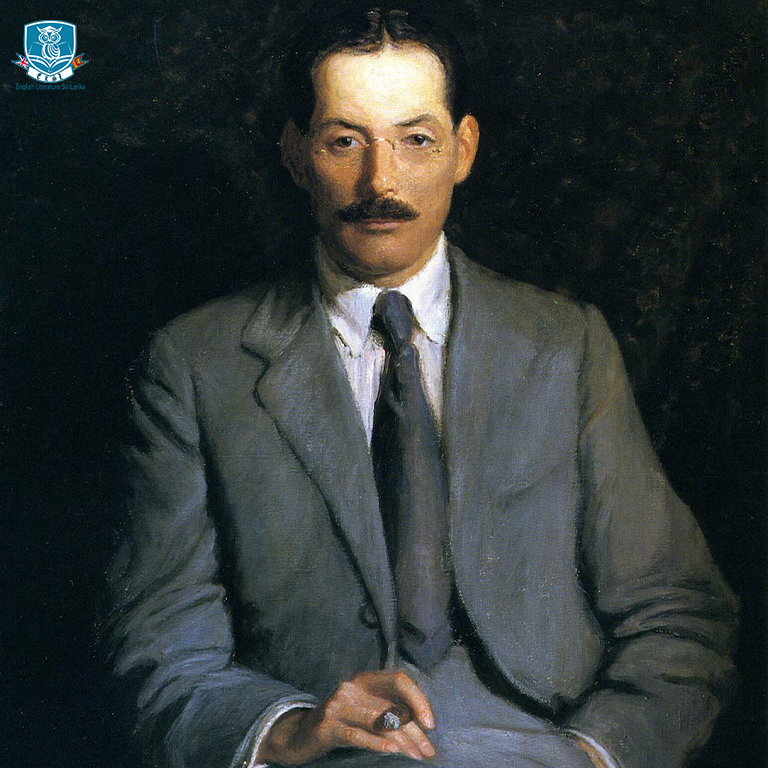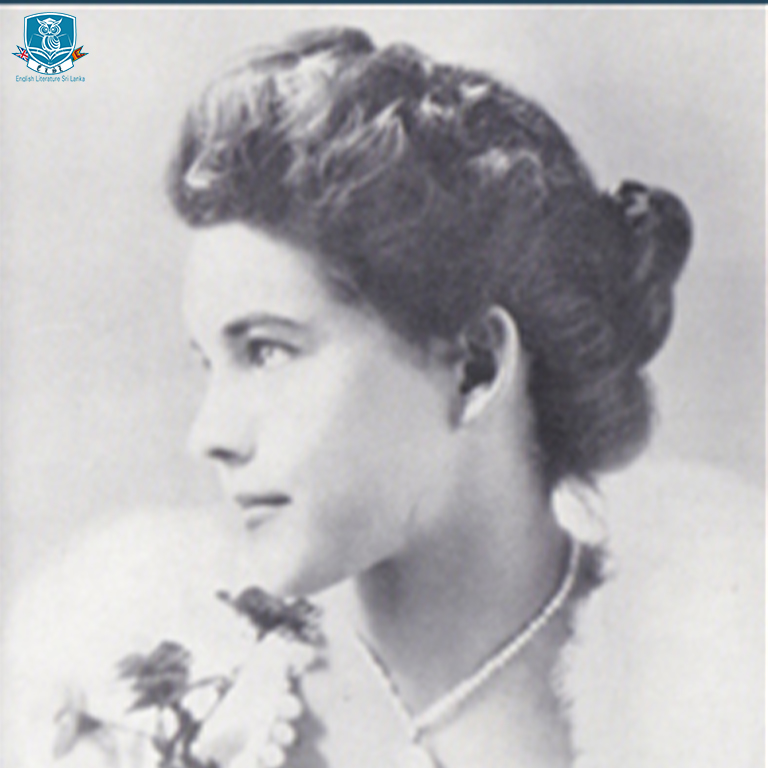Analysis of the poem "Richard Cory" by Edwin Arlington Robinson
Richard Cory - Edwin Arlington Robinson
Whenever Richard Cory went down town,
We people on the pavement looked at him:
He was a gentleman from sole to crown,
Clean favored, and imperially slim.
And he was always quietly arrayed,
And he was always human when he talked;
But still he fluttered pulses when he said,
“Good-morning,” and he glittered when he walked.
And he was rich—yes, richer than a king—
And admirably schooled in every grace:
In fine, we thought that he was everything
To make us wish that we were in his place.
So on we worked, and waited for the light,
And went without the meat, and cursed the bread;
And Richard Cory, one calm summer night,
Went home and put a bullet through his head.
Richard Cory - Background
Edwin Arlington Robinson
Edwin Arlington Robinson is an American Modernist poet who contributed to world Literature between the late 19th and early 20th centuries. Once analyzed, his story of life concludes to be dreary and unhappy. Since his parents expected a female child, they were not so happy to accept him to the family, and even rejected to name him. He hated his name Edwin as it was given by a random stranger and Arlington, as it is the name of a city. The pessimistic view he had during the early years of his life makes most of his literary works to be downbeat and dark.
His Eldest brother Dean Robinson becomes a laudanum addict, the love of his life, Emma Löehen is married by his middle brother, Herman Robinson who ultimately ends up as a failure in his business; an alcoholic who is indifferent to his wife and children who dies penniless of tuberculosis.

"Richard Cory"
The poem Richard Cory is based on the thoughts of Herman Robinson’s wife, Emma on her husband. It is composed during the panic of 1893 when the United States was suffering a severe economic depression, which is the very reason behind the tragic end of E.A Robinson’s lover’s husband. The “bread” functions as an allusion to the economic depression during which many survived by eating old bread.
‘Richard Cory’ is a based on the style of prose fiction as the content is fictitious and is revealed using vernacular language. At the same time, it functions as a lyric poetry as it is a formal poem in the first person narration which expresses ones tempestuous emotions.
The poem revolves around the one and only significant, masculine character called Richard Cory. The narrative voice casually exaggerates his judgement based on the appearance which ultimately concludes be a mere prejudice.
Richard Cory’ is a structured poem of four quartans. It is dominated by end-stops which is common in death/suicide poems. The narrator is a singular character who dwells on the pavement of ‘downtown’, yet projects a collective voice and opinion of the general working poor.



Richard Cory - Analysis
Topic
Richard Cory
- The topic of the poem is “Richard Cory”, and it sets a limitation that the literary work singularly revolves around the main character Richard Cory.
Stanza one
Line one
Whenever Richard Cory went down town,[a]
- ‘Whenever’ means ‘at whatever the time’ or ‘every time’. It suggests that Cory constantly goes ‘down town’
- Note the harsh consonant sounds associated with the name of the cynosure.
- ‘Went’ is a past tense verb, and it suggests that Cory no longer goes ‘down town’
- Down town is the commercial area of a city. The constant visits of Richard Cory to the central business area of the city suggests that he is a businessman.
Line Two
We people on the pavement looked at him:[b]
- “We people” indicates the collective voice represented by the 1st person narrator.
- The pavement on which “we people reside figuratively reveals their low standards of living.
- The pronoun ‘we’ generalizes the poverty-stricken community.
- The group of people looking at Richard Cory suggests that attempt to form an opinion on him.
Line Three
He was a gentleman from sole to crown,[a]
- The prevailing past tense affirms that ‘He’ no longer exists.
- The people on the pavement judges that Cory is a gentleman only by looking at him. In other words, their judgement is based on the appearance of Cory.
- Sole to crown suggests ‘from feet to head’.
- The ‘crown’ metaphorically refers to the apparent sovereign of the recipient whereas the homophonic pun of ‘sole’ relates to his ‘soul’.
- Note that the judgement of the people on the pavement is fundamentally based on what they see (Sole/Crown). Thus, the rudimentary judgement on Richard Cory is obvious, so it is better not to have higher expectations on him as a contradictory reality is eminent soon of the poem.
Line Four
Clean favored, and imperially slim.[b]
- ‘Clean favored’ means that Richard Cory appears to be neat and respectable.
- ‘Imperially’ denotes that Cory is redolent of a sovereign.
- The word ‘slim’ conveys that Richard Cory is gracefully thin, which enhances his visual appeal.
General outlook of stanza one
- The first stanza functions as a quatrain which has the standard ‘abab’ rhyming scheme
- The entire stanza is dominated by end-stops, which is unique for poems which have abrupt conclusions where the main character faces an unexpected death.
- The richness of the main character is one of the primary concerns of the stanza as the words ‘crown’, and ‘imperially’ relate to the concept.
- The stanza is dominated by harsh consonant sounds, which is another clue for the reader not to expect a better tomorrow.
- The tense of the entire stanza is past and the aspect is perfective; which figuratively suggests that Richard Cory no longer exists in the present of the speaker.
Subscribe to our YouTube Channel to gain access to all the new video lessons.




